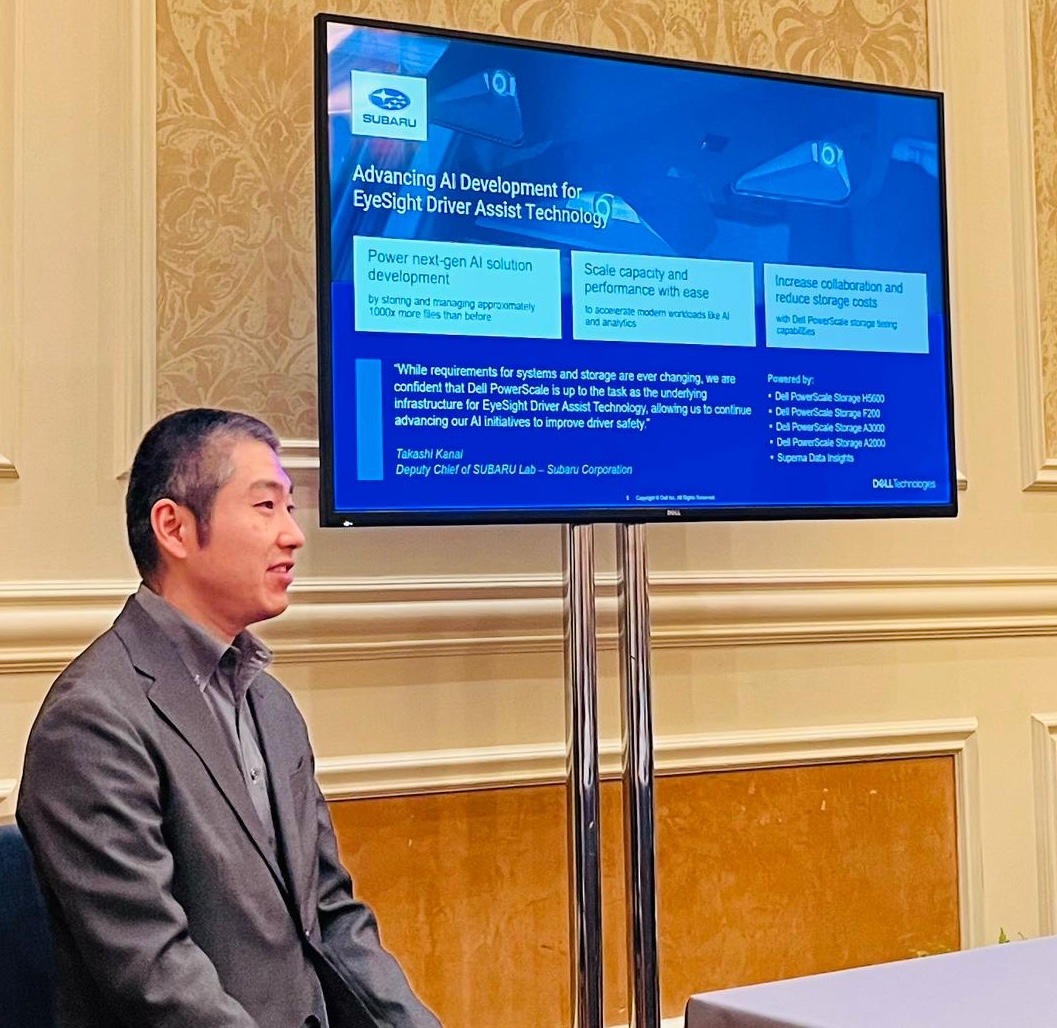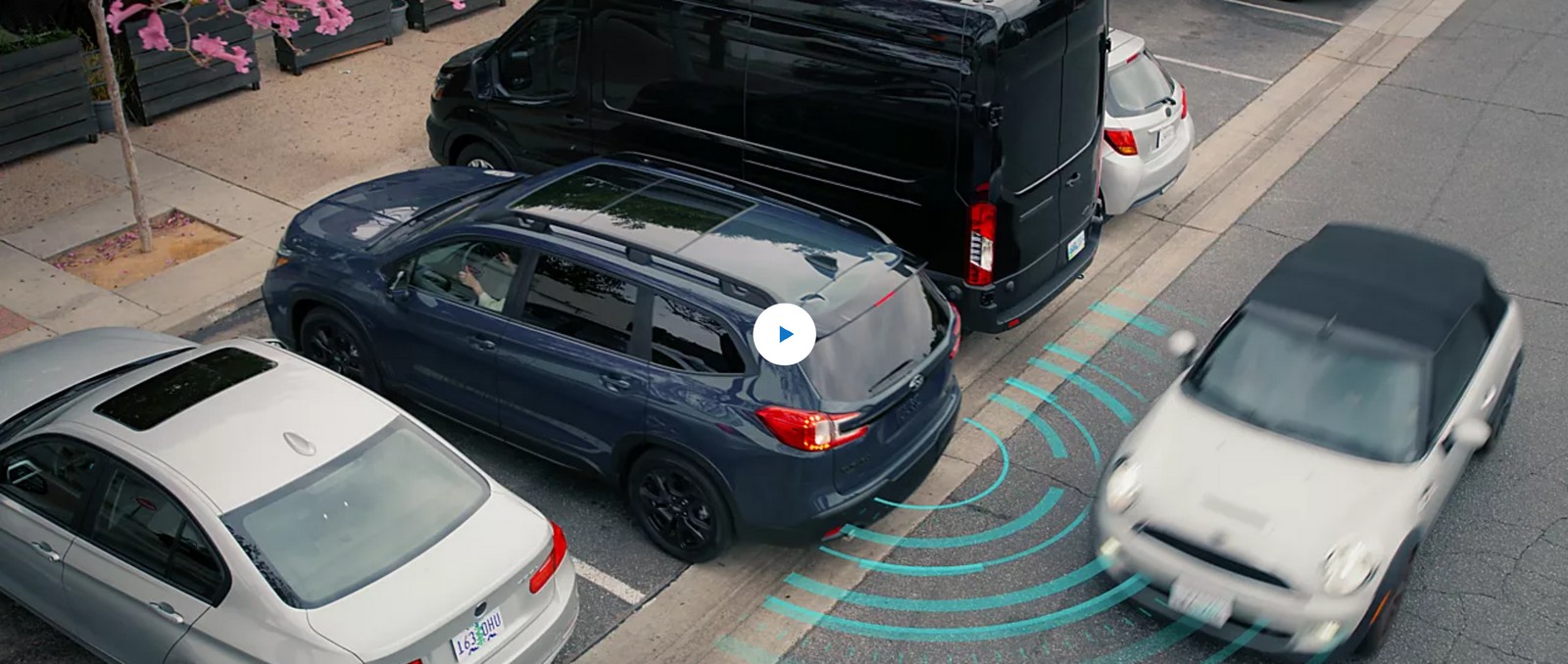
Subaru is accelerating its push into AI, harnessing machine language to enhance its EyeSight driver assistance system. The Japanese automaker aims to help drivers reduce or avoid collisions through a sophisticated blend of AI and advanced sensor data.
The next-generation EyeSight system promises to be a game-changer. Featuring two colour cameras mounted on the windshield, the system will meticulously monitor traffic and road conditions.
These cameras will be integrated with a suite of sensors capturing data from road edges, lane markings, and environmental conditions like snow and night-time driving.
Takashi Kanai, the deputy chief of Subaru Lab in Tokyo, emphasised the role of machine learning in analysing this vast array of data.
“We are leveraging machine learning to enhance safety features more rapidly and effectively,” said Kanai, at a media briefing for journalists from Asia-Pacific during Dell Technologies World last week.
The car maker is collaborating with Dell to release an advanced version of EyeSight in 2025, he added.
The technical backbone will require Dell PowerEdge servers and PowerScale storage systems to manage and process the immense volume of data generated by the cameras and sensors. The integration of air- and liquid-cooled servers will tackle the heat generated during intensive data analysis.
High-speed networking, featuring 100Gbps switches, and servers from Nvidia and other vendors, will facilitate seamless data transfer between Subaru’s Tokyo headquarters and the Lab.

Subaru’s partnership with Dell is a strategic move, reflecting a broader trend of Asian organisations increasingly turning to AI.
At the media briefing, Peter Marrs, Dell’s president for Asia-Pacific and Japan, said many enterprises across Asia are keen on deploying AI.
He highlighted examples such as a South Korean cloud service provider using Dell’s infrastructure for high-performance computing projects, and an Asian telecom operator leveraging Dell and Nvidia’s GenAI platform for R&D.
The business potential appears impressive. Dell’s research indicates that 85 per cent of firms in the Asia-Pacific and Japan region expect AI and GenAI to transform industries. “The region’s spending on GenAI is projected to soar to US$26 billion by 2027,” said Marrs.
However, he cautioned that the road to AI integration is fraught with challenges. Enterprises must clearly define their desired outcomes and ensure these goals are free from bias and feature accurate information. Additionally, the acute shortage of AI technical skills remains a significant hurdle.
To address these challenges, Dell has enhanced its AI Factory strategy. This suite of professional and technical services aims to help enterprises deploy AI swiftly and accurately, ensuring they can capitalise on the transformative potential of AI technologies.






